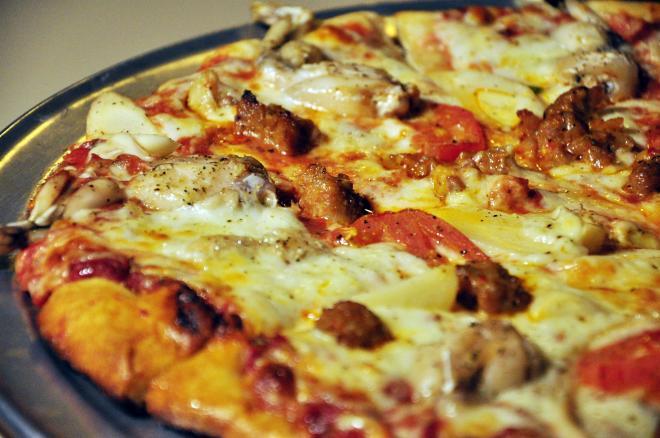Daytime sleepiness is dangerous. It causes everything from car accidents to poor cognitive performance and affects roughly 20 percent of the American adult population. Hoping to find out what’s making us so sleepy, Australian researchers from the University of Adelaide took a look at the complex anatomy of appetite and diet. Their findings, published in the journalNutrients, show how a high-fat diet plays a role in daytime sleepiness.
“Poor sleep and feeling sleepy during the day means you have less energy,” explained the study’s lead author, Yingting Cao, a doctoral candidate at the University of Adelaide, in astatement, “but this in turn is known to increase people’s cravings for high-fat, high-carbohydrate foods, which is then associated with poor sleep outcomes. The poor diet-and-sleep pattern can become a vicious cycle.”
For the study, researchers studied the dietary habits of 1,815 Australian men between the ages of 35 and 80. Over the course of a year participants were asked to fill out a food-frequency questionnaire and underwent nightly electrical monitoring to detect obstructive sleep apnea, a sleeping disorder that causes an airway blockage in the back of the throat throughout the night. Researchers found a quarter of those who reported the highest fat intake were 78 percent more likely to suffer from daytime sleepiness compared to the bottom quarter who ate the fewest fatty foods . Healthy fats, like avocado and salmon, were not distinguished from unhealthy fats like pastries and pizza.
“This has significant implications for alertness and concentration, which would be of particular concern to workers,” Cao said. “High fat intake was also strongly associated withsleep apnea. The simple message is a commonsense one, but we need more people to pay attention to it: we need to eat better; a good sleep the night before is best.”
According to the American Sleep Association, obstructive sleep apnea has historically been linked to those with a high body mass index (BMI), which occurs in more than half of all overweight and obese people. When an apnea occurs, the soft tissue in the back of the throat collapses and consequently blocks the sleeper’s airway for a few seconds or up to minutes at a time.
This can occur as often as 50 to 100 times per hour to create a cycle of constant unconscious re-awakening throughout the night. Sufferers often experience the day-to-day side effects from reduced-quality sleep by a third. While awake, many report being acutely aware of their daytime tiredness, chronic fatigue and lack of physical energy or endurance to complete a task.
Researchers also found those who ate the greatest quantity of high-fat foods were three times as likely to have sleep apnea than participants who ate the fewest fatty foods. It would seem logical to assume those who reported daytime sleepiness, sleep apnea, and high-fatty diets also had the highest BMIs in the group. However, when researchers looked at the potential link between the effect fat intake had on daytime sleepiness and weight, they found none. People who ate high-fat diets reported feeling sleepy regardless of their BMI.
“The possible mechanism could be meal timing, but we didn’t have that information,” Cao told The New York Times. “But we have reason to believe that circadian rhythm, hormones and diet all work together to create these effects.”
Everyone has a circadian rhythm, or internal clock, that is unique to them and thought to be designed by our DNA and a combination of environmental factors. Our body’s sleep and wakefulness cycles rely on the ticking of the internal clock. Its control center is located in the hypothalamus — a region in the brain that plays a key role in the intertwined relationship between sleep, food consumption, and circadian rhythm. Researchers believe it is in this region that fat takes a toll on a person’s sleep cycle.
“Everyone knows that diet has an important effect on health,” Cao said. “Extremely high fat intake is not good for sleep. So the key message here is to eat healthy. But that’s easier to say than to do.”
Source: Shi Z, Cao Y, Willert G, Taylor AW, and Adams R. Associations between Macronutrient Intake and Obstructive Sleep Apnoea as Well as Self-Reported Sleep Symptoms: results from a Cohort of community Dwelling Australian Men. Nutrients. 2016.











